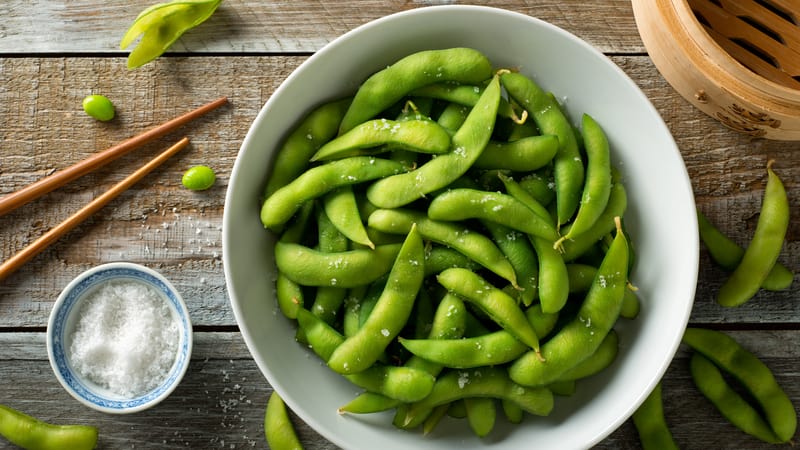Health: 7 Anti-Inflammatory Foods for Better Sleep
Eat these for those oh-so valuable Z's!

While one night of less-than-adequate sleep may leave you less productive and energized the next day, it isn’t too big of a deal. However, several nights creates a much bigger health issue. This is because a lack of sleep fuels inflammation in the body, increasing risk for developing heart disease and diabetes and decreasing the immune system’s effectiveness.
Want to get a better night’s rest? Research suggests eating certain foods can help you sleep better and reduce inflammation in the body. Check out these seven top anti-inflammatory foods for better sleep.
1. Pistachios
Thanks to their combination of protein, healthy fat, fiber, minerals and antioxidants, tree nuts are considered a great anti-inflammatory food to eat regularly. But pistachios might be the best choice if you’re struggling with sleep. This is because pistachios are one of the top sources of melatonin, the hormone in the body that helps to induce sleep.
2. Salmon
Omega-3 fatty acids are an essential anti-inflammatory nutrient that may support quality sleep. Research in children suggests that higher intake of the omega-3 fatty acid known as DHA (primarily found in cold-water fish like salmon) significantly improves sleep quality and reduces sleep disruptions, and adults would likely see similar effects.
3. Edamame
Several studies suggest that regularly eating soybeans results in significantly longer and better-quality sleep, and these effects are attributed to anti-inflammatory compounds in soy known as isoflavones. You can also get these benefits by eating other soy-based foods like tofu.
4. Decaffeinated green tea
Green tea leaves contain powerful anti-inflammatory compounds known as catechins, along with the amino acid theanine. This particular amino acid reduces stress and promotes sleep by having a calming effect on neurons and reducing stress-related chemicals in the brain. Sipping on a cup of tea each night may help some people go to sleep a little easier — just make sure you get a decaffeinated variety to drink before bed.
5. Oatmeal
Eating carbohydrate-rich foods triggers the production of serotonin, a chemical that causes drowsiness and may make it easier to fall asleep. But make sure to get that serotonin boost from higher-fiber, complex-carb foods like oats to keep blood sugar in check to prevent hunger pangs from waking you a few hours later. Plus, oats are a source of melatonin and may promote production of GABA, a neurotransmitter that has a calming effect on the brain.
6. Almonds
Magnesium promotes the production of GABA, a neurotransmitter that decreases brain and nervous system activity; this helps the body and mind to relax. And many people don’t meet their daily magnesium needs. Some insomnia sufferers have had significant sleep improvements by getting in more magnesium-rich foods, and almonds are the best source; a 1-ounce serving provides approximately 25% of daily needs! Plus, it’s also a top anti-inflammatory food.
7. Tart cherry juice
Cherries are packed with polyphenol compounds like anthocyanins, all of which work to reduce inflammation by stopping potential damage by free radicals. And research suggests that consuming 1 cup of tart cherry juice each day significantly improves sleep duration and quality. However, the mechanism behind this isn’t fully understood; but cherries do appear to increase melatonin levels. It’s also thought that the powerful antioxidants in cherries may stop inflammatory cytokines that disrupt sleep.
For more wellness tips, visit our health page!
EatingWell is a magazine and website devoted to healthy eating as a way of life. Online at www.eatingwell.com.
©2020 Meredith Corporation. Distributed by Tribune Content Agency, LLC.


